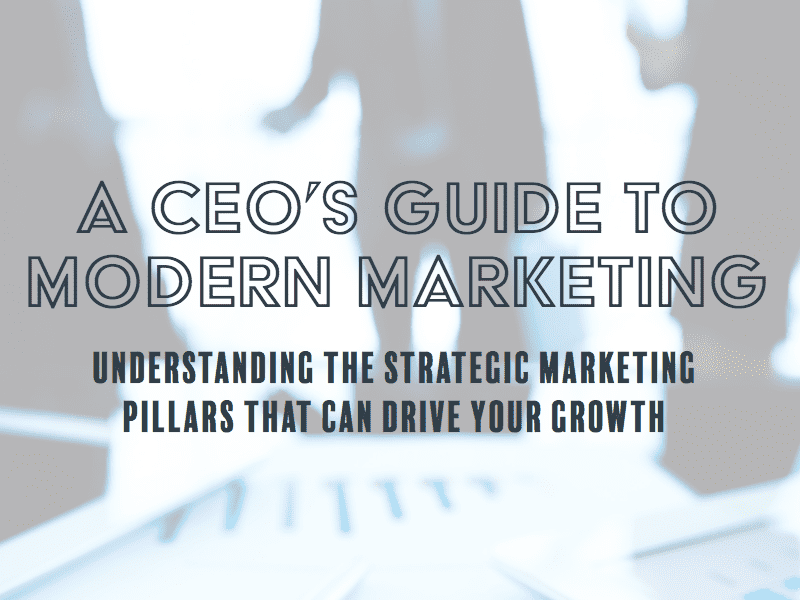Are B2B Strategic Marketing Consultants Relics?
by Debra Andrews | November 10, 2016
“He’s such a relic!”
That’s what me and my never-catty (wink) girlfriends would say about jocks when they’d come back for homecoming and hit the party circuit with their “Natty Bohs,” acting just like they did when they ruled the school. You could tell they were clinging to the past, but their time had passed.
So, what do washed-up jocks have in common with marketing?
About five years ago, I reached a point where I was working more on my business than in my business. I was hearing a lot of terms I didn’t fully understand, like “marketing automation,” “lead scoring,” and “account-based marketing.” At the same time, as the more senior marketer in my company, clients looked to me to guide them on the latest and greatest. What marketing methods and technologies should they be investing in? How could they achieve a higher marketing ROI over time?
Was I out of date? As I ruminated further on the topic, I realized marketing plans, branding, messaging, creative design, and public relations are only the tip of the marketing iceberg. Yet that’s all that many B2B strategic marketing consultants get to offer.
Which brought up an even bigger question: Are we all marketing relics?
Here are three reasons why we might be.
1. A B2B marketing strategy is essentially just a piece of paper.
As a marketing strategist, you can make a living on delivering strategies and plans to companies who need them. Strategies take research and time, but at the end of the day, the deliverable is a document, a presentation, an instruction manual.
For us, it’s a pretty good deal. We can present a thoughtful strategy, shake hands, and then walk out the door. Our work is finished, and what happens next isn’t our job. It’s up to the client to make that strategy work in the real world.
But for our clients, it’s not as good a deal. Marketing is much more than strategy. To solve B2B marketing challenges, you have to conduct ongoing testing of tactics, learn from mistakes, and continually refocus energies. You need internal selling and coordination. You need to be adaptable and be able to leverage internal skillsets. You need to lead a never-ending content creation effort.

Marketing is a moving target now. And companies need more than a marketing strategy to be successful in attracting leads or carving out a niche.
2. B2B marketing isn’t a coat of paint. It’s a cultural concern.
If you have a good eye—and I like to think I do—you know when a company isn’t going to succeed in their marketing efforts. There are signs: they’re not thinking about long-term commitment; they’re not budgeting for the post-strategy work; they’re thinking of sales and marketing as independent of one another; they have one poor, strung-out marketing coordinator managing an impossible list of tasks.

Modern marketing relies on subject matter experts, the IT department, and sales. It also needs buy-in from the top. And as a typical consultant, you can’t work through those needs in a lasting way. Because they’re bigger than a marketing strategy project. They’re systemic.
3. Most mid-sized companies have no idea how to coordinate marketing expertise.
It’s taken me a little while to understand the sheer magnitude of what I don’t know in marketing. Because new technologies are driving so much change in the marketing profession, we can’t rely on the same tried-and-tested techniques. Good luck copying and pasting text from a three-year-old marketing strategy. Those old PowerPoint decks no longer apply.
To be a good marketing strategist now takes a little discomfort and continued exploration of new tactics and technologies.
And the more you learn, the more you see the value in embracing marketing specialists. You can’t build deep knowledge in all things marketing anymore. It’s why I’ve focused on building a network of marketing professionals, and why I’m constantly on the lookout for others with specialties, with drive, with the willingness to explore new technologies.
More than ever, marketing is a coordinated effort of skillsets. How can an external consultant hope to make a dent? How can s/he hope to make lasting change?

To be successful, modern strategic marketing consultants must engage in the long term.
Five years ago, mid-existential crisis, the world was changing, and many of us were simply not keeping pace. So I searched for a model that enabled strategic marketing consultants to operate more dynamically within a client setting.
What’s the answer then? How do we make a real difference for companies that need marketing help?
The only strategy that I’ve seen make lasting differences is embedded, long-term engagements. I work with several clients as a Fractional CMO, which requires sitting in on leadership meetings, hiring and overseeing marketing professionals, working intensively with other departments, and digging into the company’s cultural makeup.
And the difference is measurable. I’ve seen:
- Marketing and sales become aligned,
- Thought leaders contributing to content marketing efforts in meaningful ways,
- Executive teams offering marketing a seat at the table and becoming laser focused on measurements,
- A greater understanding of marketing’s role across the enterprise,
- And most importantly, RESULTS!
I believe in the Fractional CMO model and the way it helps companies. I think it’s turning the traditional strategic consulting model into a relic.
Which is fine by me, if it means that we can help companies accomplish their long-term marketing goals.
Interested in More?
Then I invite you to check out our whitepaper to learn more about the marketing provider landscape.
You can also subscribe to our blog for more insights and thoughts about modern marketing. Thanks for reading, and we’ll see you soon.
Image Credits
Check out these recent insights from our subject matter experts.





